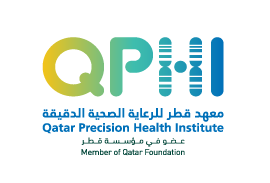
PPM 04-0128-200015
| Project Information |
|---|
Proposal Number : PPM 04-0128-200015 Program Cycle : PPM 04 Submitting Institution Name : Sidra Medicine Project Status : Award Active Start Date : 1/1/2021 Lead Investigator : Dr. Amel Hassan Project Duration : 3 Year(s) End Date : 1/1/2024 Submission Type : New Proposal Title : Unlocking precision medicine potential through functional genomic studies in the diagnosis of inherited immunodeficiency diseases. |
| Project Summary | |||||||||||||||
|---|---|---|---|---|---|---|---|---|---|---|---|---|---|---|---|
Proposal Description: Primary immunodeficiencies (PID) are a heterogeneous group of disorders characterized by a defective immune function, often resulting in susceptibility to common and rare opportunistic infections. Severe forms of immunodeficiency present early in life and are life threatening, causing a high risk of morbidity and mortality if left untreated. PID patients are vulnerable to infections and early diagnosis can help to significantly modify and improve outcome. The more severe form of PIDs are potentially curative by different forms of stem cell therapies, including Hematopoietic Stem Cell Transplant (HSCT), Gene Therapy (GT), or thymus transplant. Outcome of these therapies may be significantly compromised if the patients have co-morbidities. Early diagnosis enables the application of preventable measures including anti-microbial prophylaxis, regular surveillance for infections and prompt treatment preventing co-morbidities. Hematopoietic stem cell transplant (HSCT) is one of the more widely used cell therapies for PID. Pre-transplantation conditioning and the type of transplant differ significantly depending on the genetic defect causing the immunodeficiency. Thus, knowing the definitive genetic cause of PID helps direct the option of curative cell therapy to be used, and the choice of preparatory regimens for HSCT. More importantly, performing functional studies to define the defects underlying PIDs on a patient-specific level will inform the application of targeted therapies for more effective treatment options, ushering in a personalized medicine approach to PIDs. We have observed over the years of working with PID patients that the outcome from clinical genetic testing often reveals variants of unknown significance (VUS), some of which may actually be novel pathogenic variants. To change the classification of pathogenicity, further work up of these variants including cellular and molecular characterization are needed. In this proposal we employ a personalized medicine approach to provide definitive molecular diagnoses for children with primary immunodeficiencies at SIDRA. We plan to achieve this goal as follows: (1) Conduct detailed clinical workup and immunophenotyping of individual patients and families and confirm whether the inheritance pattern and frequency of the VUS is consistent with its role in pathogenicity. We will conduct family segregation studies of the candidate VUS and determine the frequency of the variant among the local population. (2) Undertake functional studies to define the effect of the genetic variant on cellular and molecular function using either the patient primary cells (whenever possible) or generating cellular models for the defect using genome editing technology. Research Area Keywords: Imunodeficiency; functional genomics; precision medicine; molecular biology; inherited immunodeficiency Research Type Translational Research / Experimental Development
|
| Project Summary | |||||||||
|---|---|---|---|---|---|---|---|---|---|
|
| Personnel | |||||||||||||||||||||
|---|---|---|---|---|---|---|---|---|---|---|---|---|---|---|---|---|---|---|---|---|---|
|

